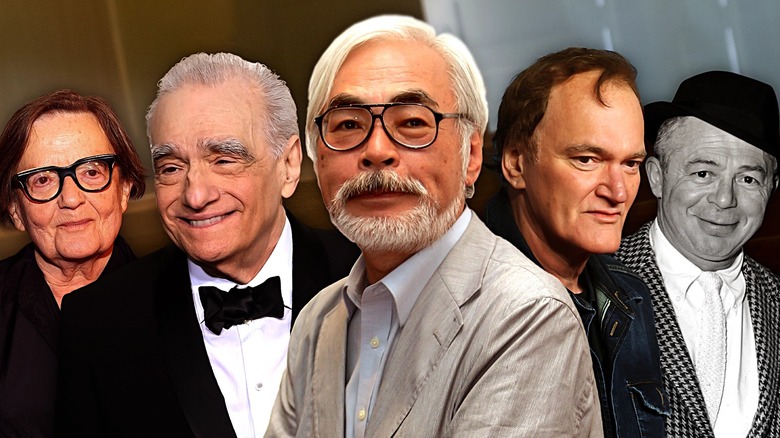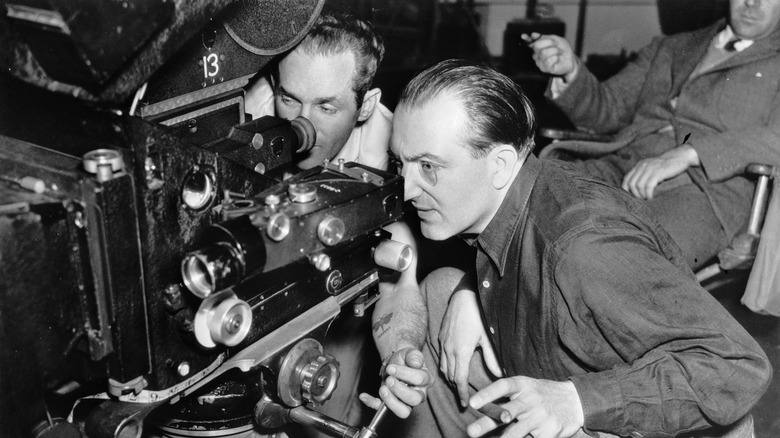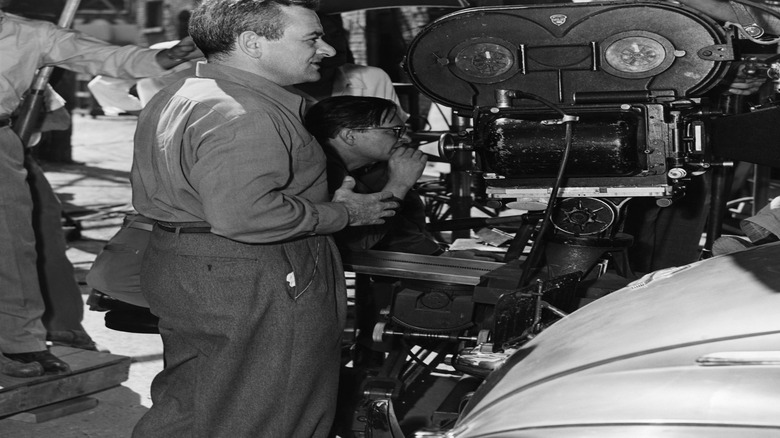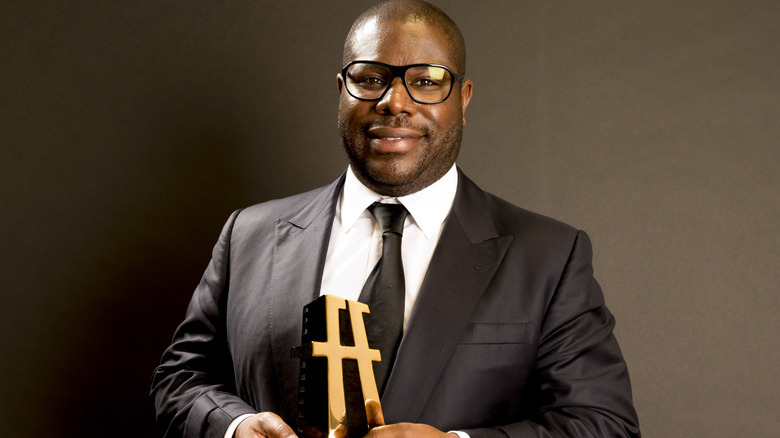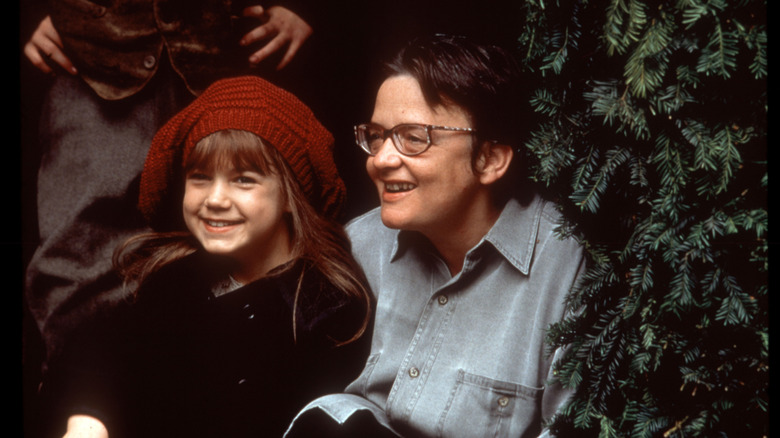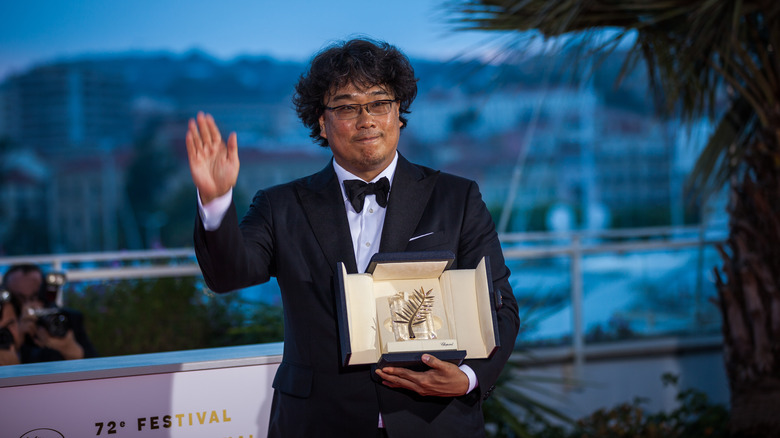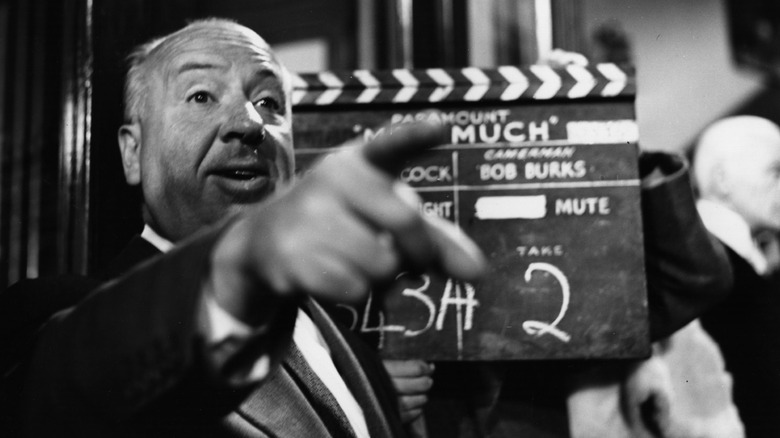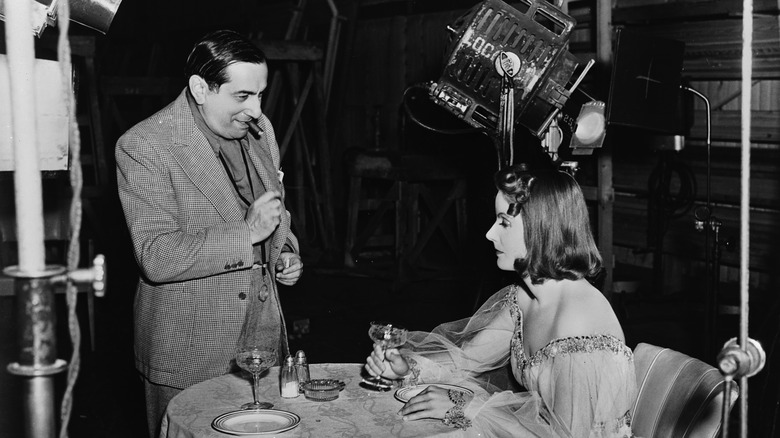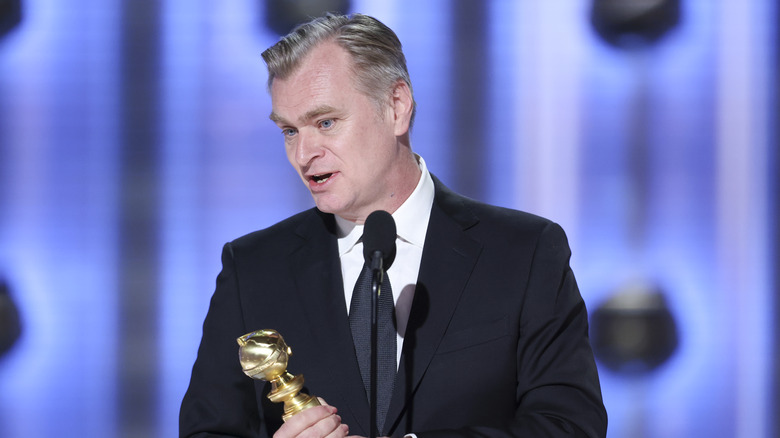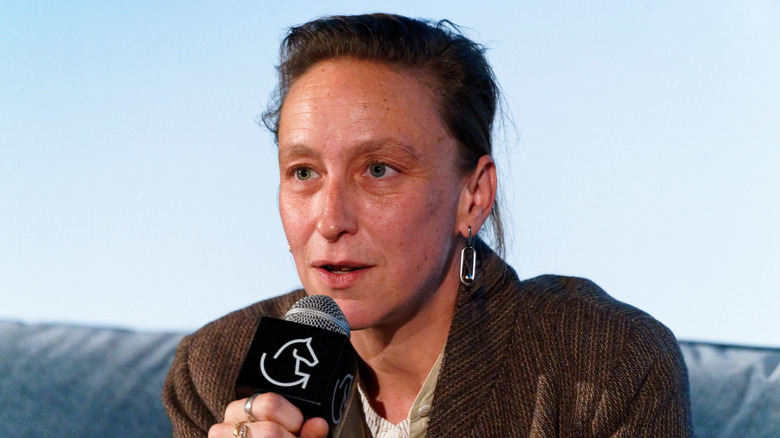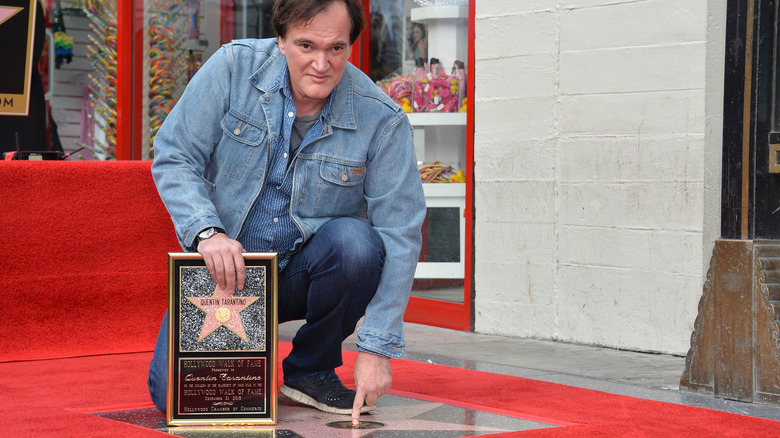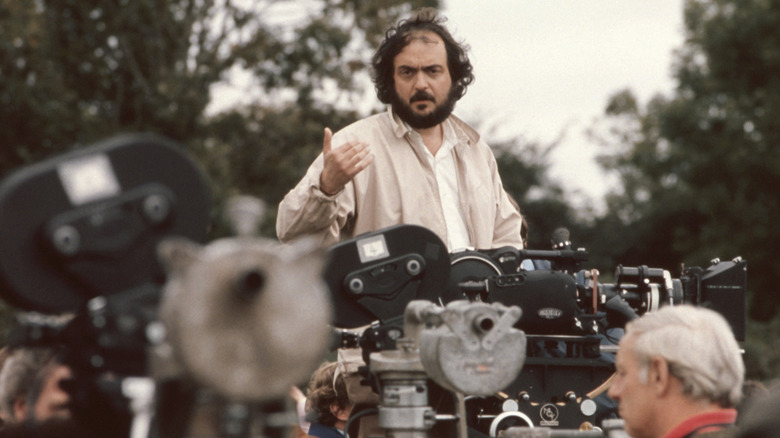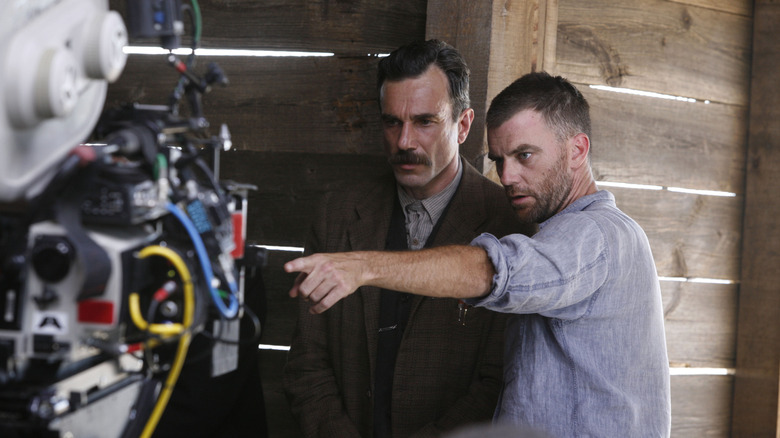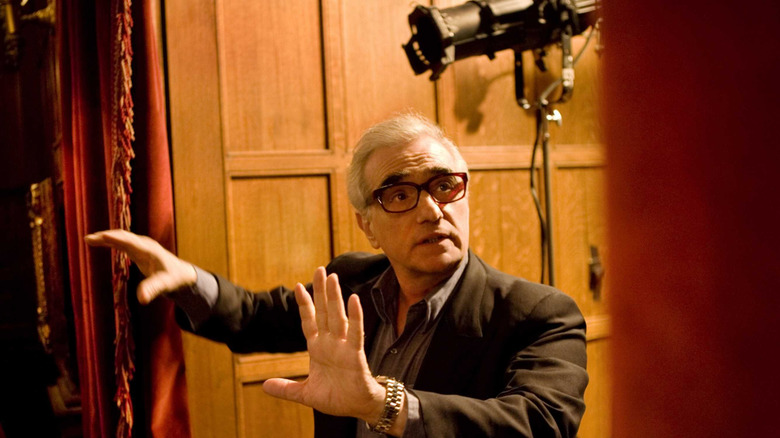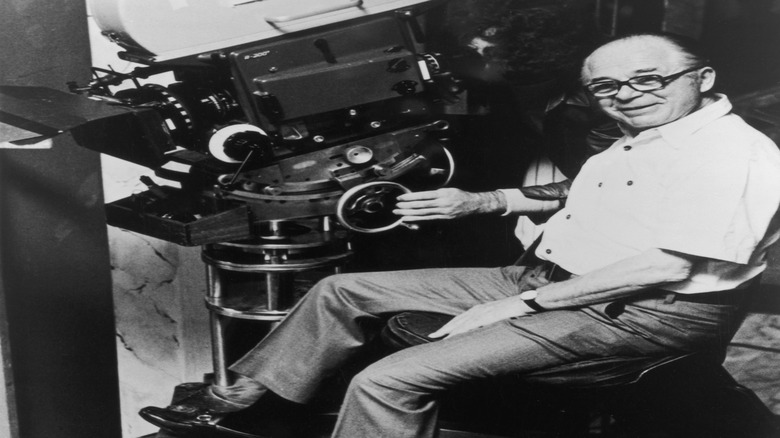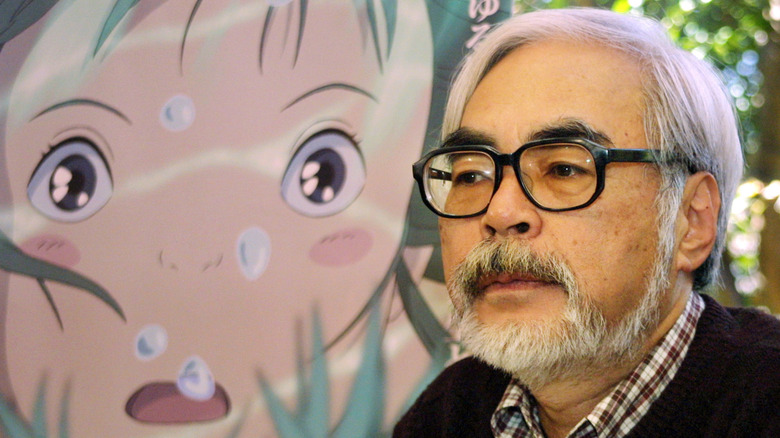15 Directors Who Never Made A Bad Movie
Even the best directors can end up with a clunker now and then. Maybe they had a grand vision that was destroyed by studio interference, maybe their actors weren't up to snuff, or maybe things just didn't coalesce on screen the way they had imagined. There's no shame in swinging for the fences and missing. But there are a storied few directors out there who defy the odds and simply don't have a single bad film to their name. "Failure?" they ask. "Never heard of her."
Now, this isn't to say that all of their movies are on the same level of excellence — that's just plain impossible. Even amongst these elite filmmakers, the quality of their efforts vary. But what we can say, in our humble opinion and with Rotten Tomatoes receipts to back us up, is that each and every director on this list may have made films that fall into the "decent" category, they have no out-and-out stinkers in their filmography. (And for the record, we didn't include any directors who have under five feature films to their name.) Inspired to learn more about the best of the best? Here are 15 directors who have never made an objectively bad movie.
Fritz Lang
Fritz Lang, born and raised in Austria, took all of the pain and darkness of Central Europe during the early 20th century and poured it into his work. As a prolific director in Germany during the Weimer years, his early films are deeply rooted in the unsettling Expressionist style, a vibe that he carried over to his American productions years later, helping to establish the dark and cynical film noir genre in the 1940s and 1950s.
A brief look through Lang's filmography speaks to the consistent quality of his work. He is, after all, responsible for out-and-out classics such as the operatic sci-fi drama "Metropolis," devastating serial killer thriller "M," "The Woman in the Window," "Scarlet Street," and "The Big Heat." Although his films were never celebrated by the Academy, they're now known as some of the most influential films ever made. Without Lang, the landscape of German and American cinema both at the time he was working and now looks a lot different.
William Wyler
During the golden age of Hollywood, there was no shortage of good directors with a well-oiled studio machine running behind them. But precisely because they were operating less as auteurs and more as cogs in a wheel, it's rare that a Hollywood director escaped unscathed by at least one or two clunkers. William Wyler is one of the few whose knack for connecting with characters and identifying exactly the right talent for his projects gave him an untarnished filmography. A German native, Wyler emigrated to the United States to work in Hollywood in the early 1920s.
Throughout his career, he was nominated for Best Director at the Academy Awards 12 times, the most of any director in film history. (He ultimately won three times for "Mrs. Miniver," "The Best Years of Our Lives," and "Ben-Hur" — only Western director John Ford has more, with four wins.) And remarkably, in each decade of his career he was responsible for at least one bona fide classic, from "Dodsworth" in the 1930s, "The Heiress" in the 1940s, "Roman Holiday" in the 1950s," and "Funny Girl" in the 1960s.
Steve McQueen
Steve McQueen is one of the most contemporary directors on our list. Born in 1969, he made his directorial debut in 2008 with "Hunger," a Michael Fassbender-led film about the 1981 Irish hunger strike. Since then, he's carved out a niche for himself as a master of the historical drama, with "12 Years a Slave" tackling the real-life story of Solomon Northup, a free Black musician in the 1800s who was kidnapped and sold into slavery, and "Small Axe" presenting several glimpses into the Black experience of life in Britain at various points in the mid-20th century.
McQueen has also proven his expertise with more modern productions, with the 2011 psychosexual thriller "Shame" and the 2018 crime drama "Widows." If there's a weak point in his career, it's "Blitz," a World War II drama starring Saoirse Ronan as the mother of a boy evacuated from London during World War II, but even that is still a solid film that demonstrates McQueen's craftsmanship.
Agnieszka Holland
Agnieszka Holland has a pretty good case as one of the most underrated directors working today. Born in Warsaw a few years after the end of World War II, Holland has been working in the film industry in the 1970s, although her best work came two decades later. In 1990, she helmed the classic WWII film "Europa Europa," the incredible true story of a Jewish teenager who successfully hid in plain sight in Germany, so much so that he was touted as a German war hero and attended a prestigious Hitler Youth Academy.
She was nominated for Best Adapted Screenplay at the Academy Awards for "Europa Europa," although a Best Foreign Film was out of reach after Germany declined to submit it for consideration. Holland is also responsible for the enchanting 1993 adaptation of "The Secret Garden," as well as "Total Eclipse," an erotic drama starring Leonardo DiCaprio and David Thewlis. More recently, she directed "Mr. Jones," which explores the heartbreaking devastation of the Russian forced famine in Ukraine through the eyes of a Welsh journalist, and 2023's "Green Border," revolving around a family of Syrian refugees on a journey from Belarus to Sweden.
Bong Joon Ho
There are a lot of reasons for the explosion in Western awareness of Korean cinema over the past few decades, but Bong Joon Ho certainly deserves at least some of the credit as one of the best South Korean directors of all time. A student of class politics, social awareness is deeply rooted in all of his films, especially his most famous production, "Parasite," which showcases the power imbalance between the working-class and the wealthy families who rely on them.
"Parasite" made history in 2020 when it took home four Oscars — the first time any Korean film had been honored with a win by the Academy — for Best Original Screenplay, Best International Film, Best Director, and Best Picture. This marked the first time that a non-English language film had taken home the top prize. If that was Bong Joon Ho's only film, he would still be worthy of praise. But he also helmed the popular films "Memories of Murder," "Mother," "Snowpiercer," and "Okja," cementing his legacy as one of the greats.
Alfred Hitchcock
Is every single one of Alfred Hitchcock's films on the same level as "Psycho" or "Vertigo"? No, of course not — that would be pretty close to impossible. But what we can say about the famed thriller director's storied career is that all of his movies are to some extent worth watching, and not just for completionists who feel the need to check off every box of a popular filmmaker's list. From his earliest films at the tail end of the silent era, it's clear that there's something special about his cinematic eye, and that holds true even when the material isn't quite up to snuff. And for a director as prolific as Hitchcock, his quality is remarkably consistent.
What else can we say about someone who gave us "Notorious," "Suspicion," "Rope," "Rebecca," "Rear Window," and "North By Northwest" — and that's just scratching the surface of his filmography? Shockingly, given his outsized influence on cinema, he never took home a competitive Oscar for Best Director, although he was nominated five times over the course of his career. Still, his "Vertigo" earned the top spot on the Sight and Sound list of the best films of all time, which has to count for something.
Ernst Lubitsch
When it comes to romantic comedies, Ernst Lubitsch is one of the all-time greats. There's even an expression called the Lubitsch touch named after him, which refers to the unique storytelling style he imbued all his films with, giving them a sort of otherworldly charm. He began his career in German silent cinema, making a series of romantic comedies with the gifted comedienne Ossi Oswalda, including the gender-bending "I Don't Want to Be a Man" and "The Doll." He transitioned to sound well, with several endearing musicals paving his way for Hollywood success.
These days, he's best-remembered for some of his boundary-pushing films of the 1930s and 1940s, which developed a reputation for being risqué. His "Design for Living," for example, is one of the earliest cinematic representations of a throuple. "Ninotchka," starring Greta Garbo and Melvyn Douglas, presented a satirical romance between East and West, with a no-nonsense Soviet woman falling in love with a decadent Frenchman. But it was "The Shop Around the Corner," putting James Stewart and Margaret Sullavan together in a winning Christmas enemies-to-lovers romance, that cemented his reputation, followed by "To Be Or Not to Be," a World War II satire that could give Mel Brooks a run for his money in how brazenly it lampoons the Third Reich.
Christopher Nolan
Although Christopher Nolan churns out films at a fairly rapid rate, he approaches each with such thoughtfulness and intentionality that it would be easy to see them all as once-a-decade passion projects. The end result is a prolific modern filmmaker who doesn't have a major misstep to his name. What's even more impressive is that he doesn't seem to play it safe — a lot of his films are somewhat risky, yet all of his swings for the fences have a tendency to pay off.
When he came out with "The Dark Knight" Batman trilogy, the idea of a dark, gritty superhero saga wasn't really in line with the type of films that Marvel and DC were making at the time. Space films are always popular, but an introspective and philosophical one like "Interstellar" wasn't a guaranteed slam dunk. A three-hour biopic about the guy who invented the atomic bomb could easily have been a tall order for general audiences. But somehow, Nolan has consistently been able to pull off these sorts of cinematic coups — elevated popcorn films, if you will — blending state-of-the-art technology with a beating heart.
Celine Sciamma
Celine Sciamma set the world ablaze with her 2019 period drama "Portrait of a Lady on Fire" about the burgeoning, passionate romance between an artist (Noémie Merlant) and Héloïse (Adèle Haenel), the woman she's been hired to paint. It was a massive success on the indie scene, demonstrating Sciamma's dexterity with queer cinema and female identity.
Her career as a director began in earnest with her feature debut, 2007's "Water Lilies," revolving around the sexual awakening of a trio of French teenage girls, which first united Sciamma with her future "Portrait of a Lady on Fire" star, Adèle Haenel. She followed this up with "Tomboy" and "Girlhood," two films that explored gender and sexual identity. After "Portrait of a Lady on Fire," she made perhaps her most openly sentimental film, "Petite Maman," where a young girl playing in the forest near her mother's childhood home is magically granted the opportunity to meet her mother when she was a kid.
Quentin Tarantino
Love Quentin Tarantino or hate him (or, as seems to be more common, find him personally irritating but enjoy his movies), the man knows his way around a camera. He's the definitive director of the video rental store generation — made up of directors who didn't go to film school like their Hollywood predecessors, but instead acquired knowledge of the trade by watching all the cinema that VHS tapes had to offer. Tarantino's never been shy about filling his movies with references to past classics, both through his dialogue and with visual homages.
But beneath that film geek showiness is a director who has a clear and unmistakable cinematic eye. He's released nine films over the course of his career, beginning with "Reservoir Dogs" in 1992 and ending with "Once Upon a Time in Hollywood" in 2019 (he has claimed for years that his next film will be his last, and that he's always planned on retiring after 10). And although fans may disagree about which is the best, it's generally accepted that even the worst of his movies is still pretty good.
Stanley Kubrick
Was Stanley Kubrick a fun director to work for? No, probably not. Colleagues have been dining out on stories of his hyper-demanding style and perfectionism for decades. But did he make some of the greatest films of the 20th century? Undeniably yes.
Kubrick's attention to detail set him apart from the rest of his ilk, helping him to craft films that adhered closely to his uncompromising vision. When you watch a film like "Barry Lyndon," the story of the dramatic rise and fall of an Irish ne'er-do-well in the 18th century, it's difficult not to be impressed by the richness and texture of everything you see on screen, the scope of filmmaking that Kubrick is able to develop through sheer force of will.
All of his movies have a unique style, perspective, and thoughtfulness that make it clear how much of himself he poured into every project. Surprisingly, Kubrick never won an Academy Award for his directorial work; the closest he got was a win for Best Special Visual Effects for "2001: A Space Odyssey." But when you have "Spartacus," "Paths of Glory," "Dr. Strangelove," "A Clockwork Orange," "The Shining," and "Full Metal Jacket" to your name, maybe awards feel superfluous.
Paul Thomas Anderson
Paul Thomas Anderson, throughout his career that begin in the 1990s with "Hard Eight" and "Boogie Nights," has never missed a chance to delve deep into the psychological minefield of his characters. Although his films have a strong visual flair, what makes them so fascinating is the depth and richness of its main players — even those we detest, we are inexplicably compelled by.
Anderson has developed a reputation for collaborating with the very best actors, offering Daniel Day-Lewis two of his most celebrated roles in "There Will Be Blood" and "Phantom Thread," and having the foresight to put Joaquin Phoenix and Philip Seymour Hoffman together in "The Master." He's also coaxed celebrated performances out of actors who were initially not known for their dramatic prowess, with Mark Wahlberg's star-making turn in "Boogie Nights" and Adam Sandler playing against type in "Punch-Drunk Love." So far, he's been nominated for three Best Director Oscars, although he has yet to win one.
Martin Scorsese
While some once-great directors spend their retirement years stubbornly working on all the ill-conceived passion projects they didn't have the industry capital to get made during their younger years (we're looking at you, Francis Ford Coppola), Martin Scorsese has avoided a similar downfall. His name means that he's able to get projects made that are near and dear to his heart, this is true, but he has as keen an eye for quality now that he's in his 80s as he had at any other point.
Beginning his career as one of the much-lauded young directors of New Hollywood in the late 1960s, all of Scorsese's films balance visual panache with thoughtful themes that are ripe for critical analysis. Although his gangster films are what he's best known for — and with movies like "Casino" and "Goodfellas" to his name, it's easy to see why — Scorsese has always been eager to experiment with different genres, hopping from dark thriller with "Cape Fear" to historical romance with "The Age of Innocence" and in just a few years. With 11 Oscar nominations to his name, he finally won Best Director in 2007 for "The Departed."
Billy Wilder
Writer and director Billy Wilder was responsible for some of the best movies in film history, especially when it came to comedies with a humanity that allowed them to pull at your heartstrings. And the fact that he worked in Hollywood for so long, making movies over the course of five entire decades, makes it even more impressive that all of his films are pretty darn good. He directed 27 movies between 1934 and 1981, amongst them classics such as "Double Indemnity," "The Lost Weekend," "Sunset Boulevard," "Ace in the Hole," "The Seven Year Itch," "Sabrina," "Witness for the Prosecution," "Some Like It Hot," and "The Apartment."
Most filmmakers would consider themselves accomplished if they produced one film of that quality — let alone all of the films on that list, from a variety of different genres. His facility with everything from noirish thrillers to airy comedies tinged with melancholy made him one of the most versatile filmmakers working during the golden age of cinema and beyond. He ultimately won seven Academy Awards: two for Best Director ("The Lost Weekend" and "The Apartment"), three for Best Screenplay ("The Lost Weekend," "Sunset Boulevard," and "The Apartment"), one for Best Picture ("The Apartment"), and the Irving G. Thalberg Memorial Award in 1987.
Hayao Miyazaki
When it comes down to giants of animation, we're pretty much looking at two guys: Walt Disney, and Hayao Miyazaki. One of the most prolific directors at Studio Ghibli, of which he is a co-founder, in Japan, Hayao Miyazaki has revolutionized the art form, making every one of his animated films not just stunning, but meaningful. Beginning in the 1980s, his lovingly-crafted productions combined charming aesthetics with profound social commentary.
They may have bewitchingly otherwordly characters, but they're also unafraid to tackle contemporary issues of environmentalism, the horrors of war, and the interconnected nature of humanity, technology, and nature. He earned Academy Award wins for Best Animated Feature in 2003 with "Spirited Away" and in 2023 with "The Boy and the Heron." There are plenty of excellent directors on this list, but Miyazaki stands in a class apart — he's not only never made a bad movie, he's seemingly never made one that's less than great.
